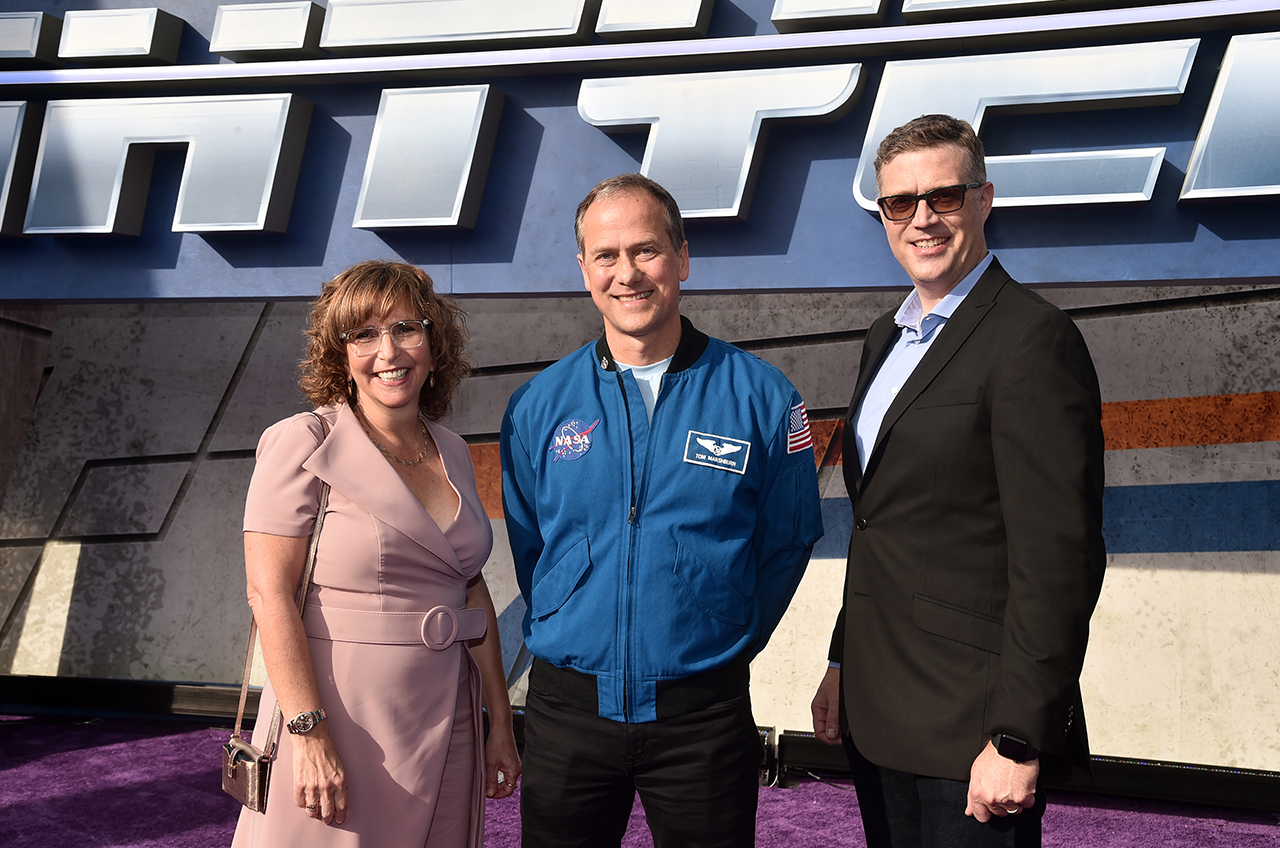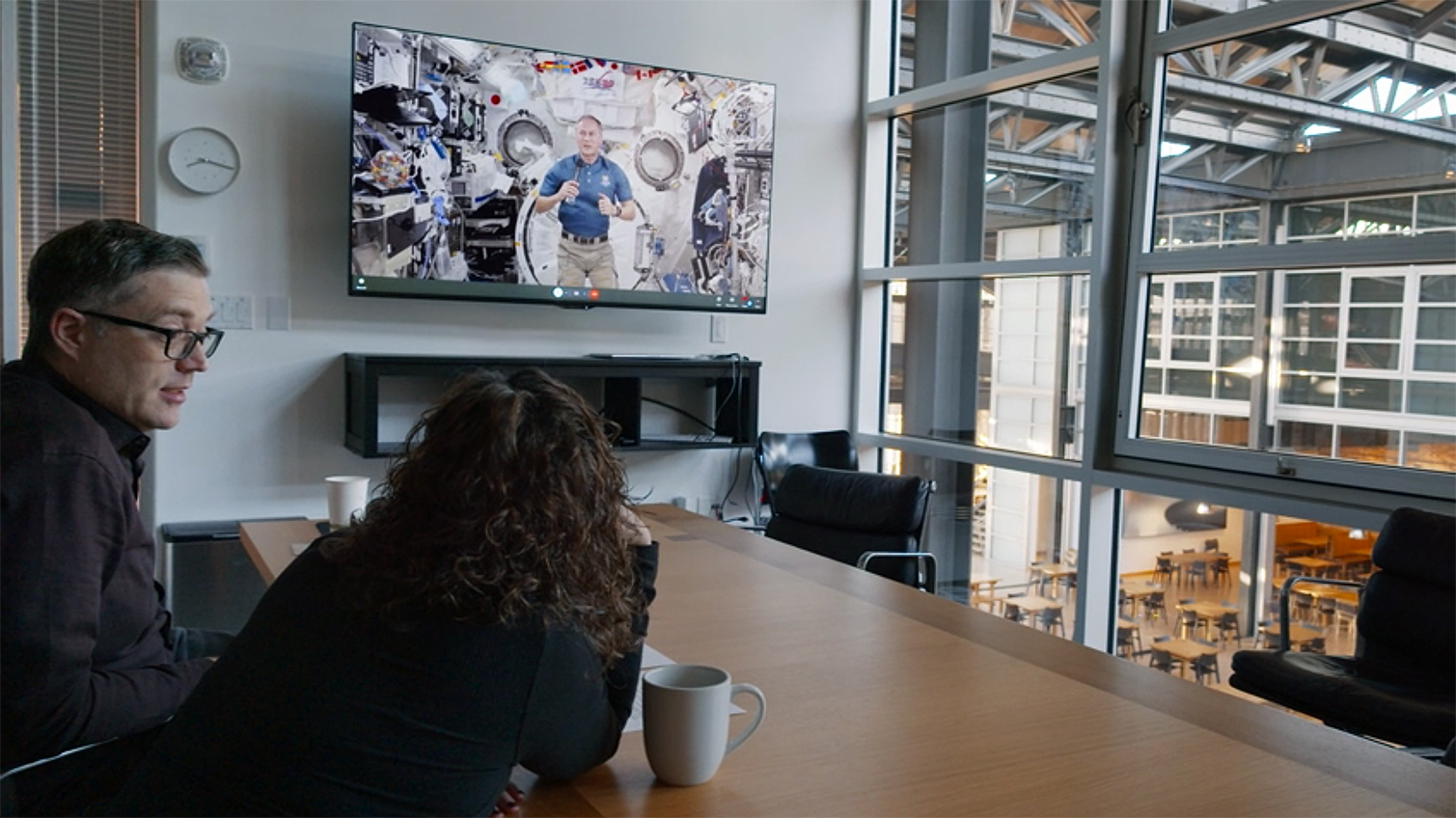Tom Marshburn may not be the real-life Buzz Lightyear, but the space ranger — at least as he appears in the new movie “Lightyear” — would not be the same without the NASA astronaut.
What started several years ago as an unrelated interaction with Pixar, the Disney-owned animation studio behind the “Toy Story” and now “Lightyear” franchises, led to the 61-year-old physician-turned-SpaceX pilot becoming the animators’ guide to the world of NASA and space exploration (opens in new tab).
“It was recommended that I talk to a team that was putting together a movie about space. That was all I knew,” Marshburn said in an interview with collectSPACE.com.
So about five years ago, Marshburn made the trip out to Pixar Animation Studios in Emeryville, California, where he met with director Angus MacLane and the core team behind what would become “Lightyear.”
“I told them about life in space and spacewalks and just answered all their questions about what it was like to be an astronaut and to live and work in space,” Marshburn said.
Related: The best space movies
As it happens, that was exactly what the Pixar team needed in order to begin turning their instantly recognizable astronaut toy (opens in new tab) into the character that inspired it. “Lightyear,” now in theaters, is the fictional big-budget movie that gave rise to the action figure that was then central to the earlier “Toy Story” films.
In “Lightyear,” Buzz is a not a toy (opens in new tab), but a vulnerable, human space explorer (voiced by Chris Evans).
“We had to incorporate some of the ingredients of the toy in the design,” said production designer Tim Evatt in a statement released by Disney. “But almost as if we’d taken it to NASA and worked with experts who actually do space travel and add that authenticity of space to the suit.”
In fact, that is more or less what they did. While training for his most recent flight to the International Space Station (ISS), Marshburn arranged for the Pixar team to tour NASA’s Johnson Space Center in Houston.
“I was able to show them around how astronauts train,” said Marshburn. “They met other astronauts, they met people that work here and saw the facilities: the neutral buoyancy laboratory where we practice spacewalks, the hangar where we have our T-38 jets that we train with and a lot of the simulators.”
“It ended up being a really jam-packed day-and-a-half tour, but a lot of fun,” said Marshburn.
The visit helped shape the look of Buzz Lightyear in “Lightyear.” Together with a virtual meeting with a spacesuit design consultant and reference material from the Smithsonian, the tour provided tailoring and simulation supervisor Fran Kalal the information and inspiration needed to create not one, but multiple generations of Buzz Lightyear’s spacesuits.
Buzz’s first suit in the film, for example, evokes the hardware from the early days of human space exploration, embracing function over form.
“The chest box is bulky and secured with a webbed harness,” Kalal said. “The oxygen hose is loose and unwieldy. The wrist communicator is strapped onto the suit. The suit has padded knees, elbows and shoulders to protect Buzz from jostling in the ship, and to afford mobility.”
“The utility belt is bulky with large metal buckles. And the boots, gloves and neck rings all allow for rotation but are heavy and a bit unwieldy,” she said.
With each mission, Buzz’s suits get sleeker, with better mobility and integrated technology.
Related: The evolution of the spacesuit in pictures

“We tend to be a bit obsessive about research at Pixar,” said producer Galyn Susman, who was also on the Marshburn-led tour. “The goal is to take your key creatives and expose them to the people, the environments and experiences that will impact the design and the language of the film.”
“We saw the original control center for the Apollo missions, as well as the one being used today to track the ISS. We saw buttons, switches, knobs, dials and badges. We were guided through a replica of the ISS US quarters and the labs. We saw vehicles, training aircraft and capsules,” said Susman.
Marshburn consulted with Susman and MacLane once more, from a location that was even more appropriate for the subject matter: Earth orbit. He spoke with the two filmmakers after he launched to the International Space Station for SpaceX’s 176-day Crew-3 mission, which concluded early last month (opens in new tab).
“Time dilation is real. Because the speed of light is the same no matter who is looking, who is observing it, time progresses more slowly for people and objects that are moving fast compared to the objects that are not moving fast,” Marshburn told Susman and MacLane, addressing a plot point from the film.
A clip from the space-to-ground call is included in the “making-of” documentary, “Beyond Infinity: Buzz and the Journey to Lightyear,” now streaming on Disney+.

About a month after returning to Earth, Marshburn became one of the first people to see the completed film at the world premiere of “Lightyear” in Hollywood. Although he isn’t able to single out a particular detail or scene that he directly influenced, he said the movie does succeed in conveying a sense of real space exploration (opens in new tab).
“There is a lot of reality in the look and feel of the hardware that is used by the characters,” Marshburn told collectSPACE. “I also think that the personalities of the characters are closer to reality than other depictions I’ve seen of astronauts.”
“The respect that the movie pays to science and technology, even if it is a science fiction film — it is fiction — I think that can draw in a whole generation of young people and others who, through their fascination with wanting to see this entertaining movie, begin to ask what of this is real, what can I learn about it, and then get introduced to science, technology, engineering and math,” Marshburn said. “So, it’s a wonderful way to open the door to that as an exciting field, and that’s the real excitement for me to be a part of it.”
Follow collectSPACE.com (opens in new tab) on Facebook (opens in new tab) and on Twitter at @collectSPACE (opens in new tab). Copyright 2022 collectSPACE.com. All rights reserved.

